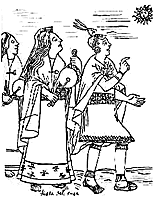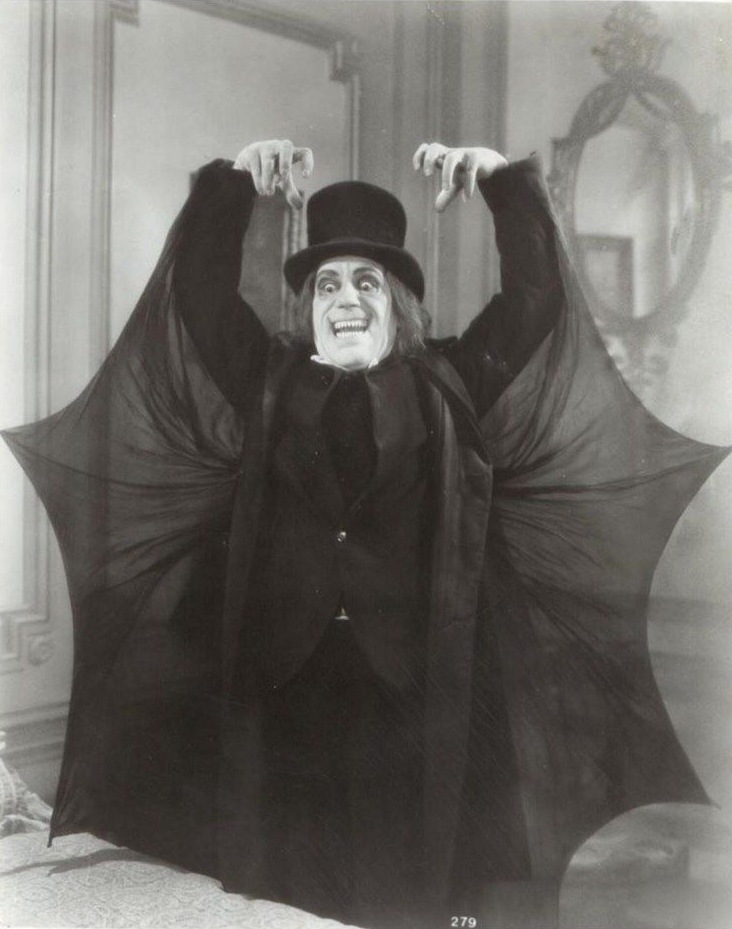|
The Spiders (film)
''The Spiders'' (german: Die Spinnen) is a German silent two-part adventure film written and directed by Fritz Lang. It was released in two parts in 1919 and 1920. Two more parts were originally planned but never made. It was believed to be a lost film, but it has been rediscovered and restored. Plot :Part 1. ''Der goldene See'' ("The Golden Lake"): In San Francisco, well-known sportsman, adventurer and traveller Kay Hoog announces to his club that he has found a message in a bottle with a map drawn by a Harvard professor who has gone missing. The message tells of a lost Incan civilization that possesses an immense treasure. Hoog starts an expedition to find the treasure, while the crime syndicate "Die Spinnen" sends out a rival expedition led by the beautiful but dangerous Lio Sha. At the Golden Lake, Hoog saves the Inca priestess Naela and falls in love with her. He takes her home with him after discovering a mysterious clue about a diamond ship. Back in San Francisco, Lio Sh ... [...More Info...] [...Related Items...] OR: [Wikipedia] [Google] [Baidu] |
Fritz Lang
Friedrich Christian Anton Lang (; December 5, 1890 – August 2, 1976), known as Fritz Lang, was an Austrian film director, screenwriter, and producer who worked in Germany and later the United States.Obituary ''Variety'', August 4, 1976, p. 63. One of the best-known ''émigrés'' from Germany's school of Expressionism, he was dubbed the "Master of Darkness" by the British Film Institute. He has been cited as one of the most influential filmmakers of all time. Lang's most celebrated films include the groundbreaking futuristic ''Metropolis'' (1927) and the influential '' M'' (1931), a film noir precursor. His 1929 film ''Woman in the Moon'' showcased the use of a multi-stage rocket, and also pioneered the concept of a rocket launch pad (a rocket standing upright against a tall building before launch having been slowly rolled into place) and the rocket-launch countdown clock. [...More Info...] [...Related Items...] OR: [Wikipedia] [Google] [Baidu] |
Incan
The Inca Empire (also known as the Incan Empire and the Inka Empire), called ''Tawantinsuyu'' by its subjects, (Quechua for the "Realm of the Four Parts", "four parts together" ) was the largest empire in pre-Columbian America. The administrative, political and military center of the empire was in the city of Cusco. The Inca civilization arose from the Peruvian highlands sometime in the early 13th century. The Spanish began the conquest of the Inca Empire in 1532 and by 1572, the last Inca state was fully conquered. From 1438 to 1533, the Incas incorporated a large portion of western South America, centered on the Andean Mountains, using conquest and peaceful assimilation, among other methods. At its largest, the empire joined modern-day Peru, what are now western Ecuador, western and south central Bolivia, northwest Argentina, the southwesternmost tip of Colombia and a large portion of modern-day Chile, and into a state comparable to the historical empires of Eurasia ... [...More Info...] [...Related Items...] OR: [Wikipedia] [Google] [Baidu] |
Gaylord Carter
Gaylord Carter (August 3, 1905 – November 20, 2000) was an American organist and the composer of many film scores that were added to silent movies released on video tape or disks. He died from Parkinson disease. Early life and musical beginnings Gaylord Beach Carter was born in Wiesbaden, Germany, the son of Charles Davis Carter (1857–1940) and Olive Athena Beach (1873–1964). His father was a church organist and taught music, while his mother taught voice. They met in Europe and were married at Litchfield cathedral in England, eventually spending time in Wiesbaden, where Gaylord was born. He was originally to be called Mortimer Preston Carter, and the name Gaylord came about later. His family soon emigrated to the United States, settling in Wichita, Kansas, where his father opened a conservatory of music and also served as a church organist. The young Carter displayed the family talent for music and became a soloist in a church choir, until his voice changed. He also pl ... [...More Info...] [...Related Items...] OR: [Wikipedia] [Google] [Baidu] |
Lost Film
A lost film is a feature or short film that no longer exists in any studio archive, private collection, public archive or the U.S. Library of Congress. Conditions During most of the 20th century, U.S. copyright law required at least one copy of every American film to be deposited at the Library of Congress at the time of copyright registration, but the Librarian of Congress was not required to retain those copies: "Under the provisions of the act of March 4, 1909, authority is granted for the return to the claimant of copyright of such copyright deposits as are not required by the Library." A report created by Library of Congress film historian and archivist David Pierce claims: * 75% of original silent-era films have perished. * 14% of the 10,919 silent films released by major studios exist in their original 35 mm or other formats. * 11% survive only in full-length foreign versions or film formats of lesser image quality. Of the American sound films made from 1927 to 1 ... [...More Info...] [...Related Items...] OR: [Wikipedia] [Google] [Baidu] |
Berlin
Berlin ( , ) is the capital and largest city of Germany by both area and population. Its 3.7 million inhabitants make it the European Union's most populous city, according to population within city limits. One of Germany's sixteen constituent states, Berlin is surrounded by the State of Brandenburg and contiguous with Potsdam, Brandenburg's capital. Berlin's urban area, which has a population of around 4.5 million, is the second most populous urban area in Germany after the Ruhr. The Berlin-Brandenburg capital region has around 6.2 million inhabitants and is Germany's third-largest metropolitan region after the Rhine-Ruhr and Rhine-Main regions. Berlin straddles the banks of the Spree, which flows into the Havel (a tributary of the Elbe) in the western borough of Spandau. Among the city's main topographical features are the many lakes in the western and southeastern boroughs formed by the Spree, Havel and Dahme, the largest of which is Lake Müggelsee. Due to its l ... [...More Info...] [...Related Items...] OR: [Wikipedia] [Google] [Baidu] |
Weissensee Studios
The Weissensee Studios (german: Filmstadt Weißensee) was a collection of separate film production studios located in the Berlin suburb of Weissensee (Berlin), Weißensee during the silent era. History The two main studios comprising the complex were almost next-door neighbours, and this has given rise to confusion as to the identity of the film companies involved and which premises they leased or owned. The studio buildings discussed in this article retained completely separate identities throughout their existence although they were occupied by several different film production companies. No films were ever made or released by "The Weissensee Studios" or "Filmstadt Weißensee", and there was never at any time any sort of joint or corporate entity with such a name. The two main locations were: *5-7 Franz Josef-Straße. Associated companies and directors: Deutsche Vitascope, Greenbaum-Film (Jules Greenbaum); PAGU (Paul Davidson (producer), Paul Davidson); Fema-Film Atelier Gmb ... [...More Info...] [...Related Items...] OR: [Wikipedia] [Google] [Baidu] |
Tierpark Hagenbeck
The Tierpark Hagenbeck is a zoo in Stellingen, Hamburg, Germany. The collection began in 1863 with animals that belonged to Carl Hagenbeck Sr. (1810–1887), a fishmonger who became an amateur animal collector. The park itself was founded by Carl Hagenbeck Jr. in 1907. It is known for being the first zoo to use open enclosures surrounded by moats, rather than barred cages, to better approximate animals' natural environments. History Animal and Human trading In 1863, the elder Hagenbeck began collecting exotic animals that came through Hamburg's port. By the 1870s, the trade had proved more lucrative than his fish shop, and Hagenbeck had become one of the most prominent exotic animal traders in all of Europe. In 1874, the younger Hagenbeck traveled around the world collecting animals. Among his collections, however, were also human beings whom he exhibited in "human zoos". Hagenbeck decided to exhibit Samoan and Sami people as "purely natural" populations. The Sami were p ... [...More Info...] [...Related Items...] OR: [Wikipedia] [Google] [Baidu] |
Babelsberg Studios
Babelsberg Film Studio (german: Filmstudio Babelsberg), located in Potsdam-Babelsberg outside Berlin, Germany, is the second oldest large-scale film studio in the world only preceded by the Danish Nordisk Film (est. 1906), producing films since 1912. With a total area of about and a studio area of about it is Europe's largest film studio. Hundreds of films, including Fritz Lang's ''Metropolis'' and Josef von Sternberg's ''The Blue Angel'' were filmed there. More recent productions include ''V for Vendetta'', '' Captain America: Civil War'', ''Æon Flux'', '' The Bourne Ultimatum'', ''Valkyrie'', ''Inglourious Basterds'', ''Cloud Atlas'', ''The Grand Budapest Hotel'', ''The Hunger Games'', ''Isle of Dogs'' and ''The Matrix Resurrections''. Today, Studio Babelsberg remains operational mainly for feature film productions. It also acts as producer on German productions and co-producer on international high-budget productions. Since January 2022 it has been owned by TPG Real Estate ... [...More Info...] [...Related Items...] OR: [Wikipedia] [Google] [Baidu] |
The Cabinet Of Dr
''The'' () is a grammatical article in English, denoting persons or things already mentioned, under discussion, implied or otherwise presumed familiar to listeners, readers, or speakers. It is the definite article in English. ''The'' is the most frequently used word in the English language; studies and analyses of texts have found it to account for seven percent of all printed English-language words. It is derived from gendered articles in Old English which combined in Middle English and now has a single form used with pronouns of any gender. The word can be used with both singular and plural nouns, and with a noun that starts with any letter. This is different from many other languages, which have different forms of the definite article for different genders or numbers. Pronunciation In most dialects, "the" is pronounced as (with the voiced dental fricative followed by a schwa) when followed by a consonant sound, and as (homophone of pronoun ''thee'') when followed by a v ... [...More Info...] [...Related Items...] OR: [Wikipedia] [Google] [Baidu] |
Thea Zander
Thea may refer to: * Thea (name), a given name * Ancient Greek term for goddess, including an alternative spelling of Theia * ''Thea'', the former name of the tea plant genus, now included in ''Camellia'' * Thea, a village in the municipal unit Messatida, Achaea, Greece * Thea (award), the annual award from the Themed Entertainment Association * Thea (New-Gen), a Marvel Comics New-Gen character * ''Thea'' (TV series), a 1993 short-lived television series starring Thea Vidale and Brandy Norwood * Tampa-Hillsborough Expressway Authority, a regional expressway authority based in Hillsborough County, Florida * Another word for the mythological animal theow * "Thea", a song by Goldfrapp from ''Tales of Us'' * Theia (planet), a planet hypothesized to have collided with Earth 4.5 billion years ago to form the moon * ''Thea'', a video game series beginning with '' Thea: The Awakening'' See also * Theia (other) * Thia (other) Thia may refer to: * ''Thia'', a genus in whi ... [...More Info...] [...Related Items...] OR: [Wikipedia] [Google] [Baidu] |
Reiner Steiner
Reiner may refer to: *Reiner (crater), a crater on the Moon, named after Vincentio Reiner *Reiner Braun, a fictional character in the anime/manga series '' Attack on Titan'' People with the given name Reiner *Reiner Knizia, a board game designer *Reiner Schöne (born 1942), German actor People with the surname Reiner *Carl Reiner (1922–2020), American film director, screenwriter, actor and father of Rob Reiner * Charles Reiner (1884–1947), English cricketer * Daniel Reiner (born 1941), French politician * Franz Reiner (1912–?), Swiss sprint canoer *Fritz Reiner, early-20th-century Hungarian conductor * Grete Reiner (1885–1944), Czech-German magazine editor and writer * Herbert Reiner Jr., American diplomat * Ira Reiner, American lawyer and politician * Irving Reiner, American mathematician *Jared Reiner, American professional basketball player * Keani Reiner (1952–1994), Hawaiian surfer and sailor *Lucas Reiner (b. 1960), American painter, printmaker, photographer, filmmak ... [...More Info...] [...Related Items...] OR: [Wikipedia] [Google] [Baidu] |
Friedrich Kühne
Friedrich Kühne (24 April 1870 – 13 October 1959), born Franz Michna, was a German film actor of the silent era. He appeared in more than 100 films between 1913 and 1957. Selected filmography * ''The Iron Cross'' (1914) * ''Detektiv Braun'' (1914) * ''Der Hund von Baskerville'' (''The Hound of the Baskervilles'') (1914) as Stapleton * '' The Silent Mill'' (1914) * ''Tales of Hoffmann'' (1916) * '' Ferdinand Lassalle'' (1918) * '' The Prisoner of Dahomey'' (1918) * ''Alraune, die Henkerstochter, genannt die rote Hanne'' (1918) * '' Opium'' (1919) * '' Veritas Vincit'' (1919) * '' The Spiders'' (1919-1920, 2 parts) * '' Judith Trachtenberg'' (1920) * ''The Song of the Puszta'' (1920) * ''Lady Hamilton'' (1921) * ''The Terror of the Red Mill'' (1921) * '' The Black Panther'' (1921) * ''Danton'' (1921) * ''Children of Darkness'' (1921) * ''Hashish, the Paradise of Hell'' (1921) * '' Treasure of the Aztecs'' (1921) * ''Die Gezeichneten'' (1922) * ''The False Dimitri'' (1922) ... [...More Info...] [...Related Items...] OR: [Wikipedia] [Google] [Baidu] |







.png)